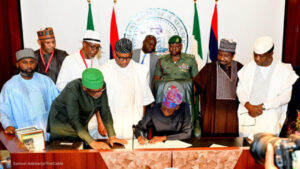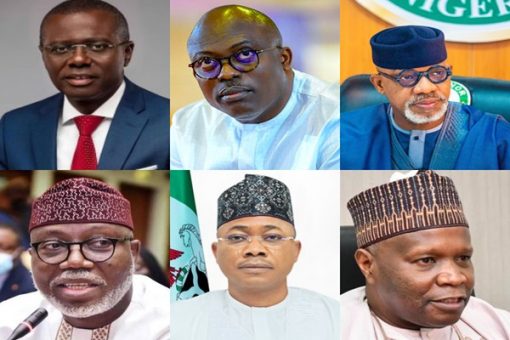President Bola Ahmed Tinubu’s signing of the ₦70,000 minimum wage bill into law in July has sparked mixed reactions across Nigeria.
The new wage, which marks a 133% increase from the previous ₦30,000, was introduced in response to the severe economic hardship affecting the purchasing power of millions of citizens.
However, since the announcement, many states have slowly embraced the change.

The Nigerian Governors Forum had previously expressed concerns over the financial capabilities of certain states to meet the new wage requirement.
In a promising development, six state governors have stepped forward to implement the ₦70,000 minimum wage and pledge to pay salaries above the federally approved amount.
This commitment comes amid ongoing discussions on how to address the economic challenges facing the nation and improve the living standards of workers.
Six state governors have taken bold steps to implement the wage increase, with some surpassing the ₦70,000 mark:
- Babajide Sanwo-Olu (Lagos State): Announced that Lagos will pay ₦85,000, taking into account the city’s higher cost of living.
- Siminalayi Fubara (Rivers State): Approved ₦85,000, citing the state’s oil wealth to justify the higher rate.
- Dapo Abiodun (Ogun State): Set a minimum wage of ₦77,000, showing commitment to enhancing worker welfare.
- Lucky Aiyedatiwa (Ondo State): Promised ₦73,000 during his election campaign, aligning his policy with workers’ demands.
- Ahmed Ododo (Kogi State): Approved ₦72,500, with an additional one-year suspension of the tax burden on the amount.
- Muhammad Yahaya (Gombe State): Committed to ₦71,500 after signing an agreement with the Nigerian Labour Congress.
These states have taken proactive measures to address the economic challenges, while others remain cautious due to financial constraints. The move by these governors could potentially inspire more states to follow suit in improving the livelihood of their workers.
Click here to join our Telegram Channel

